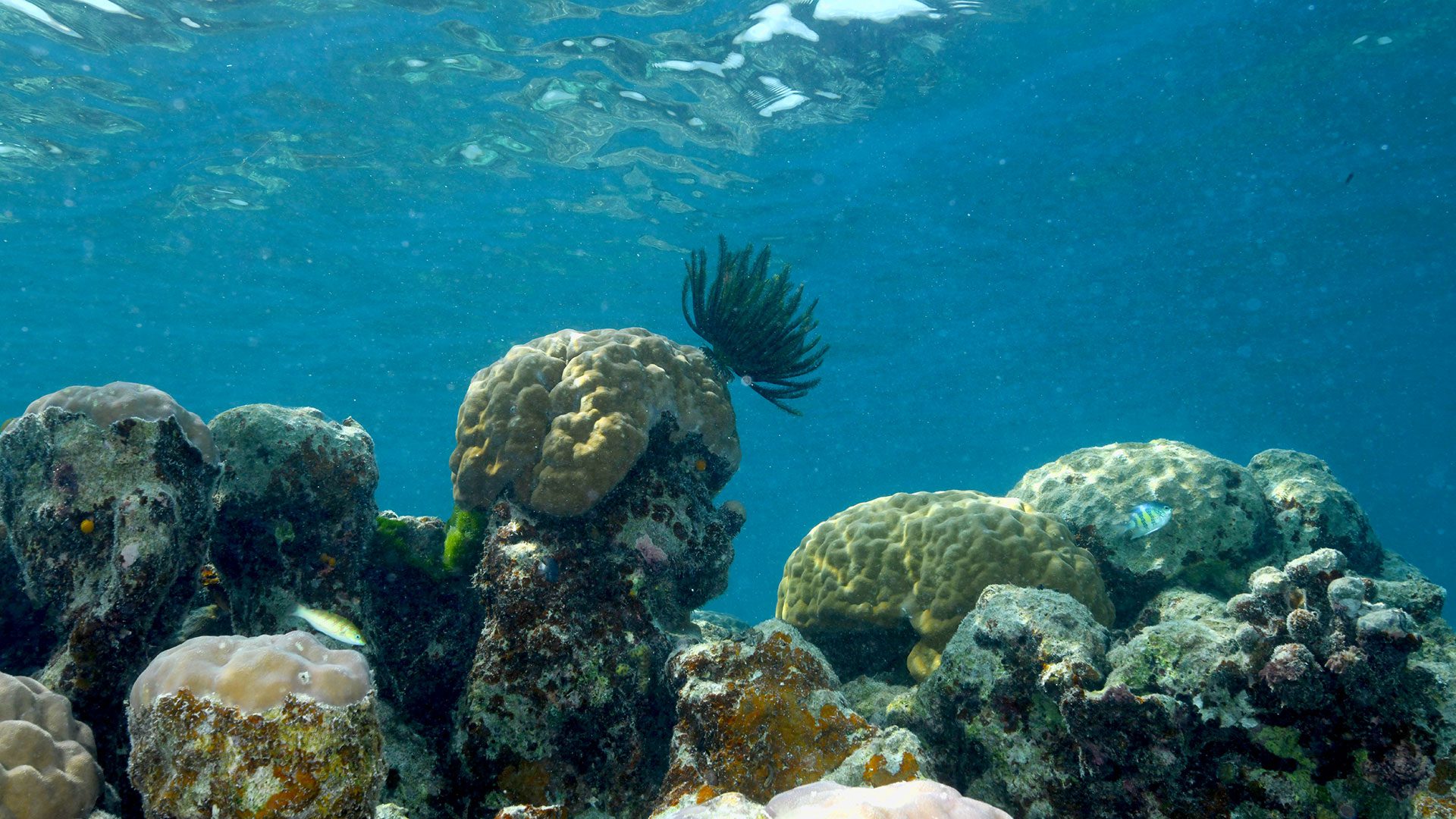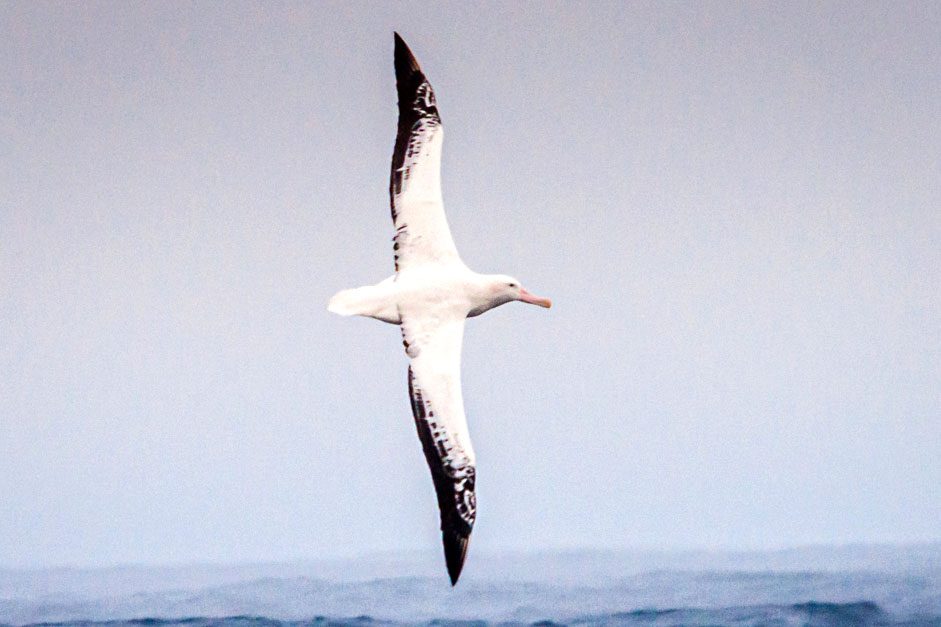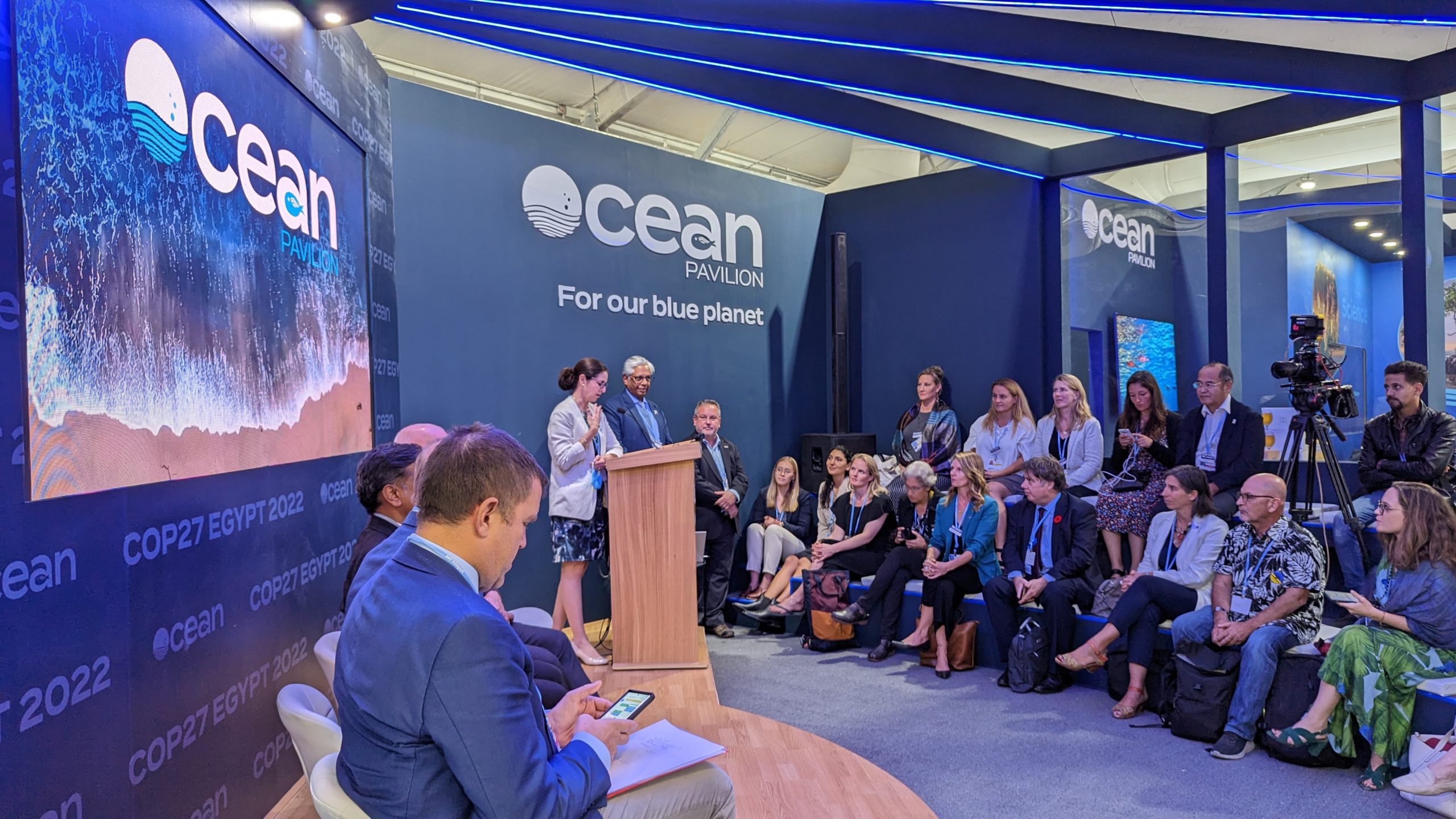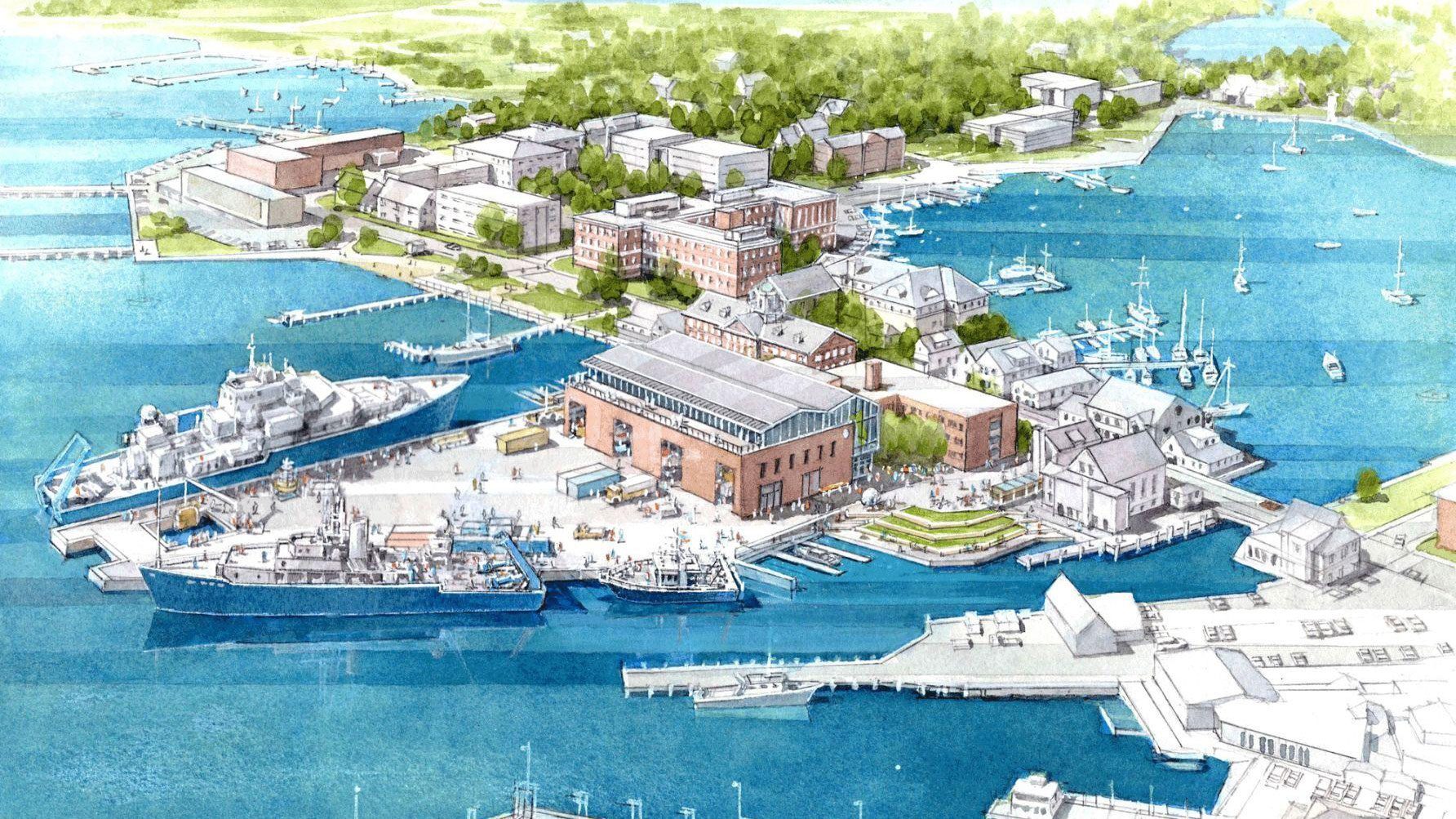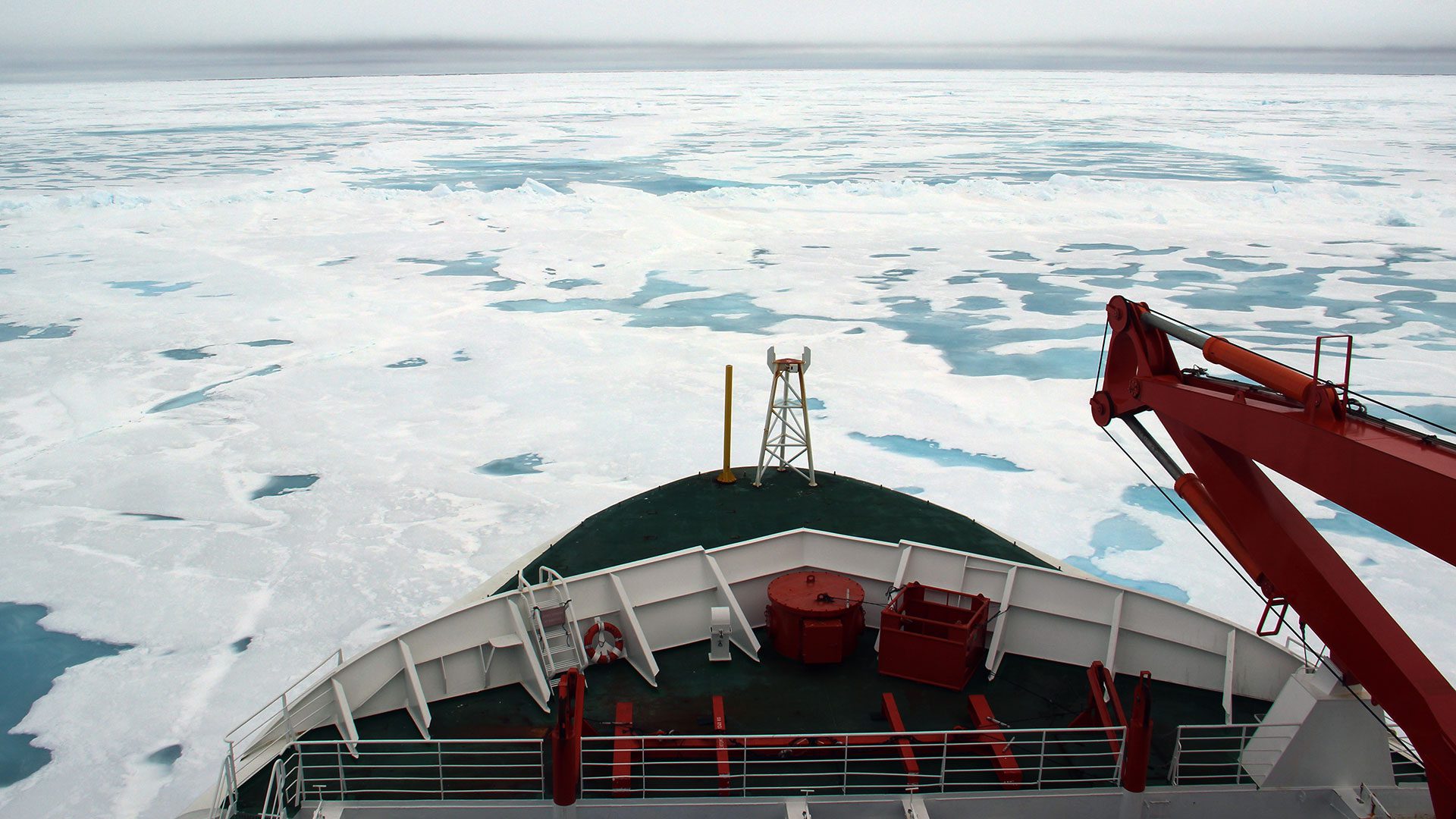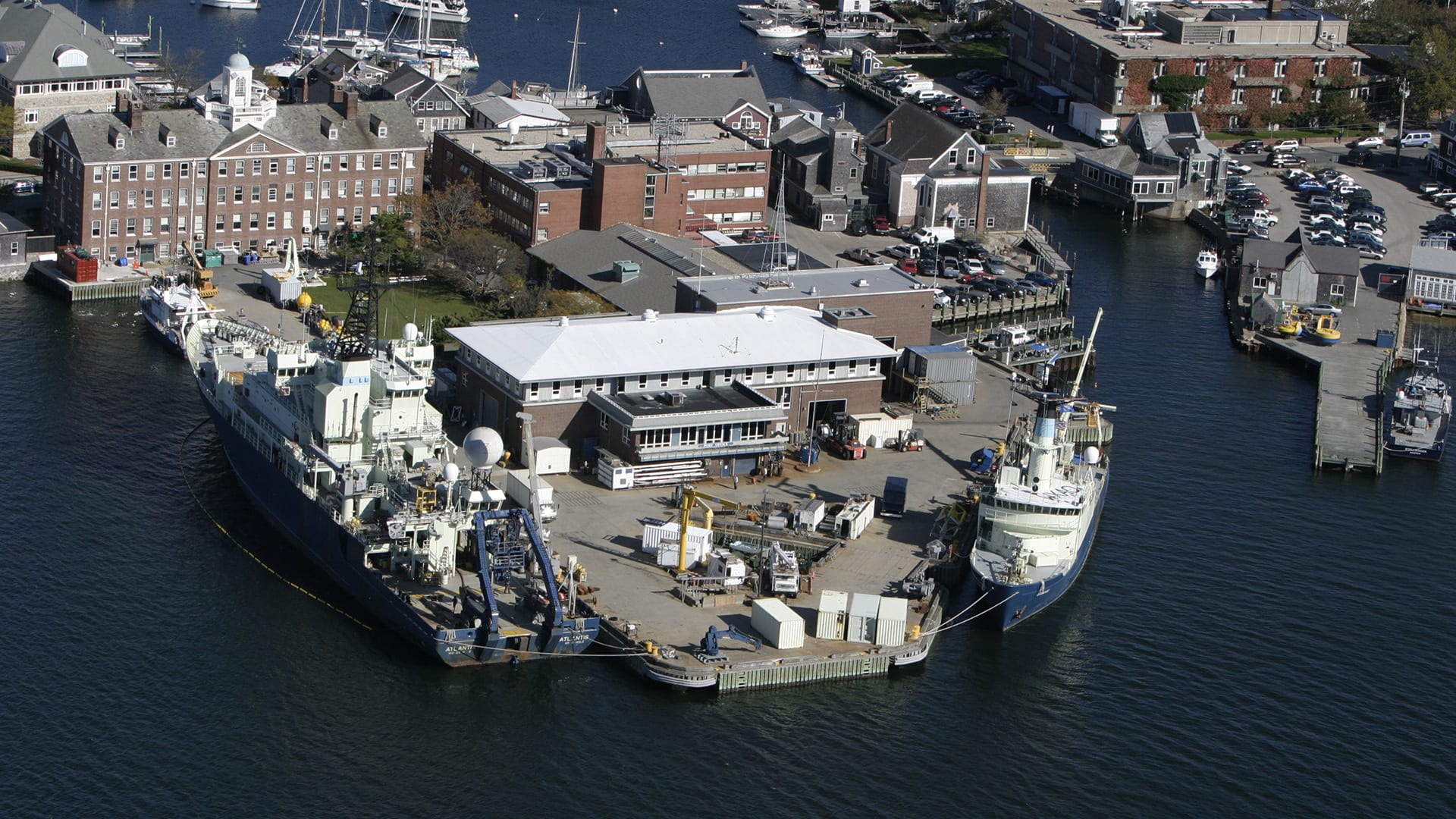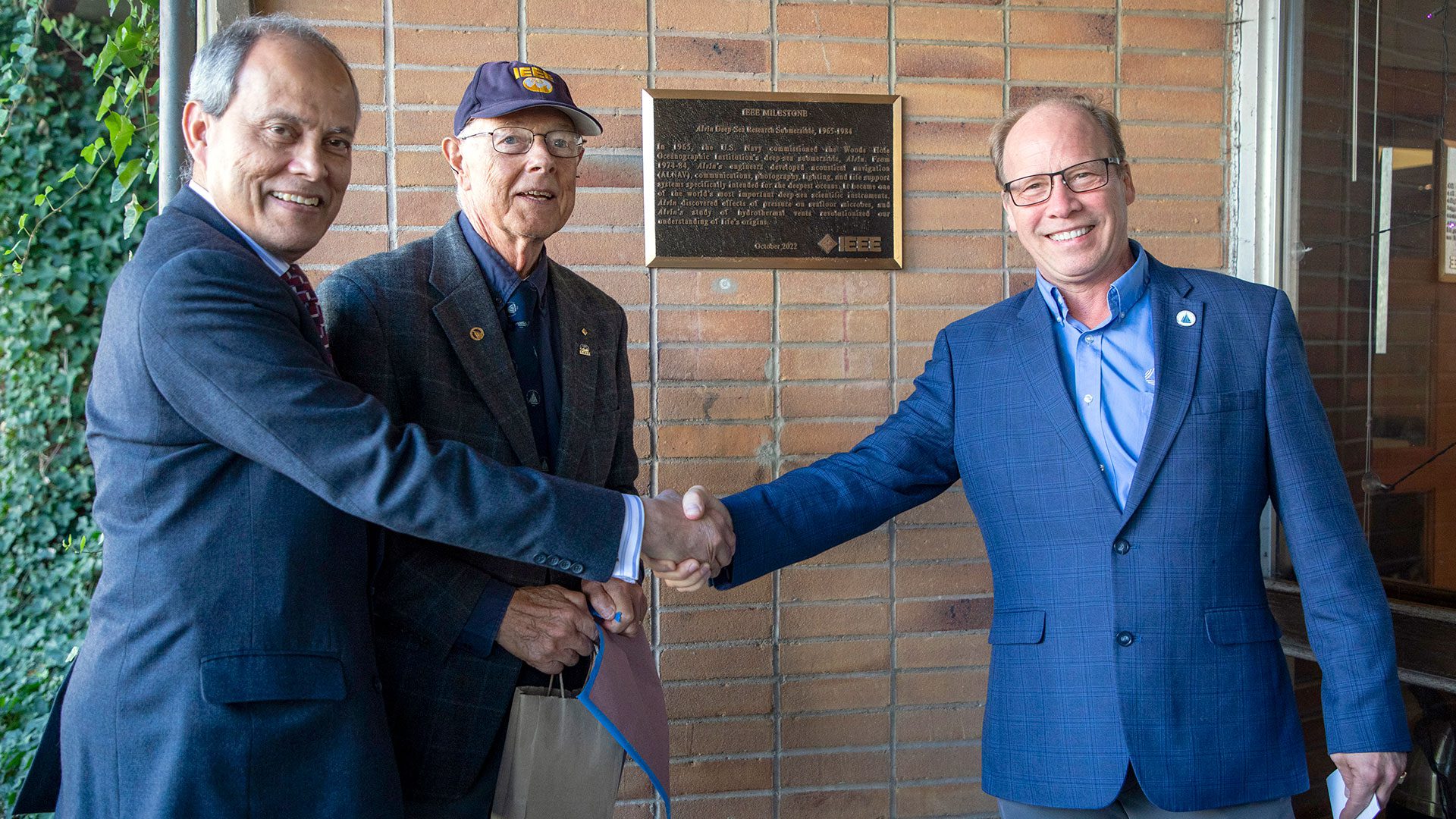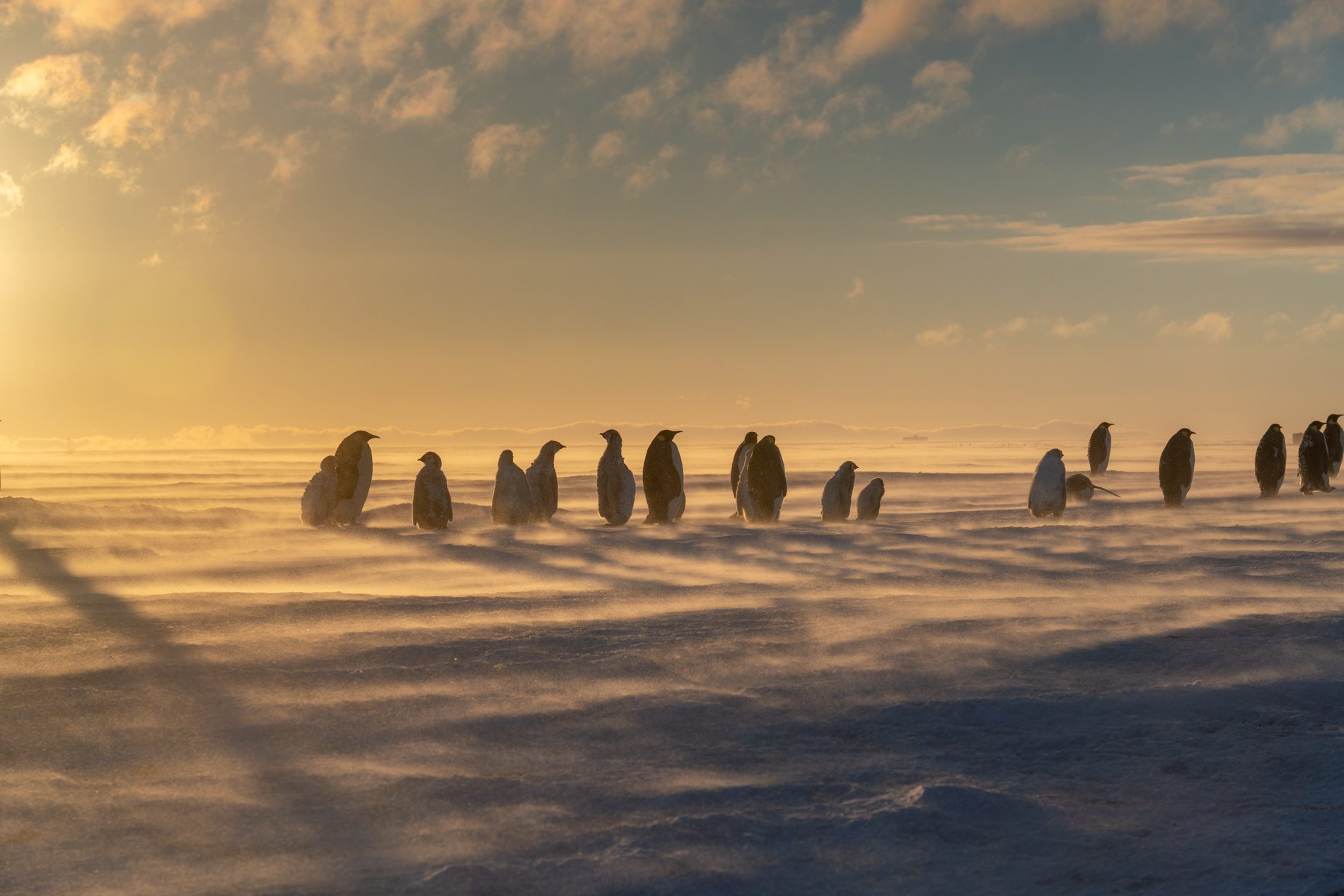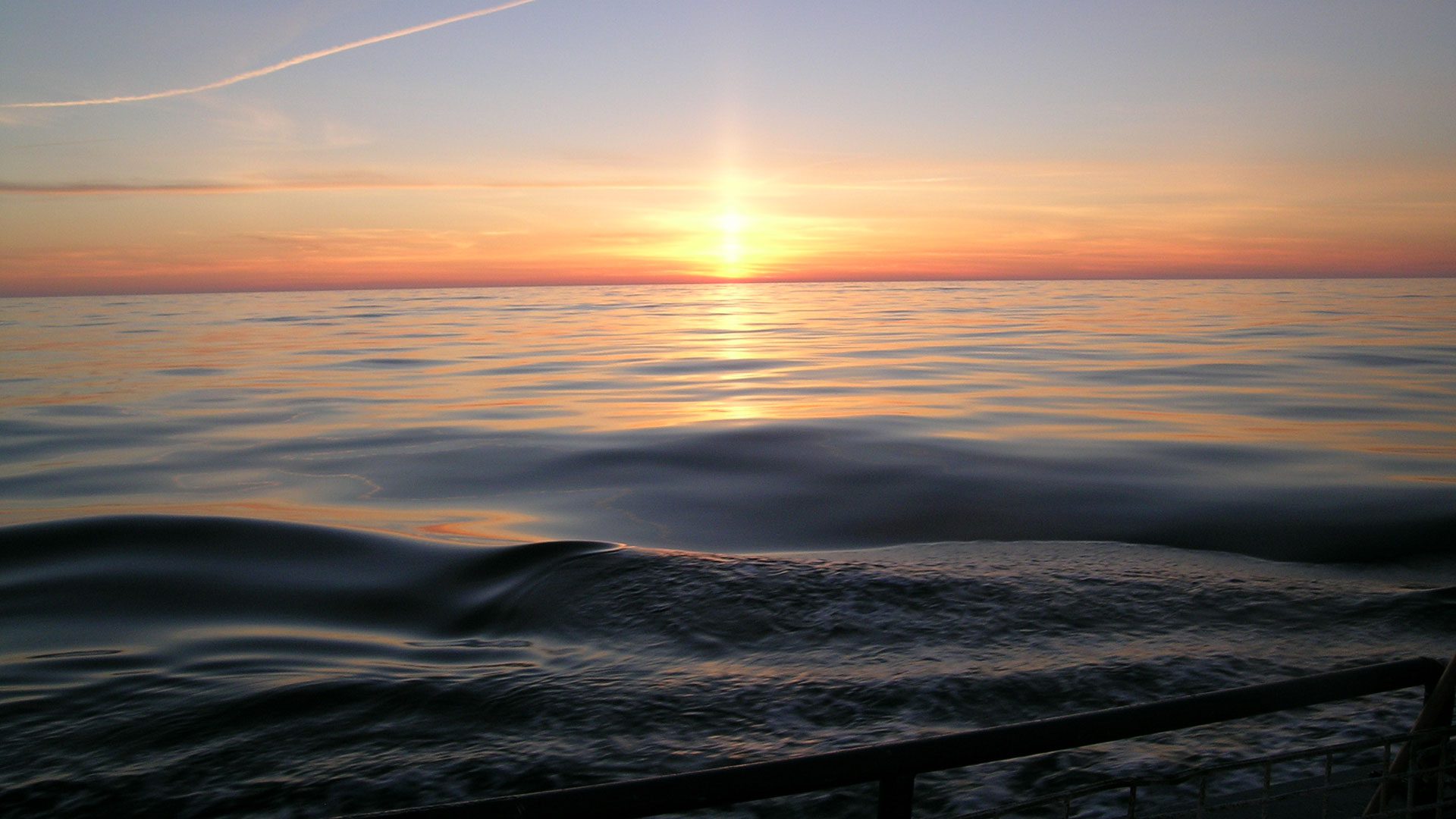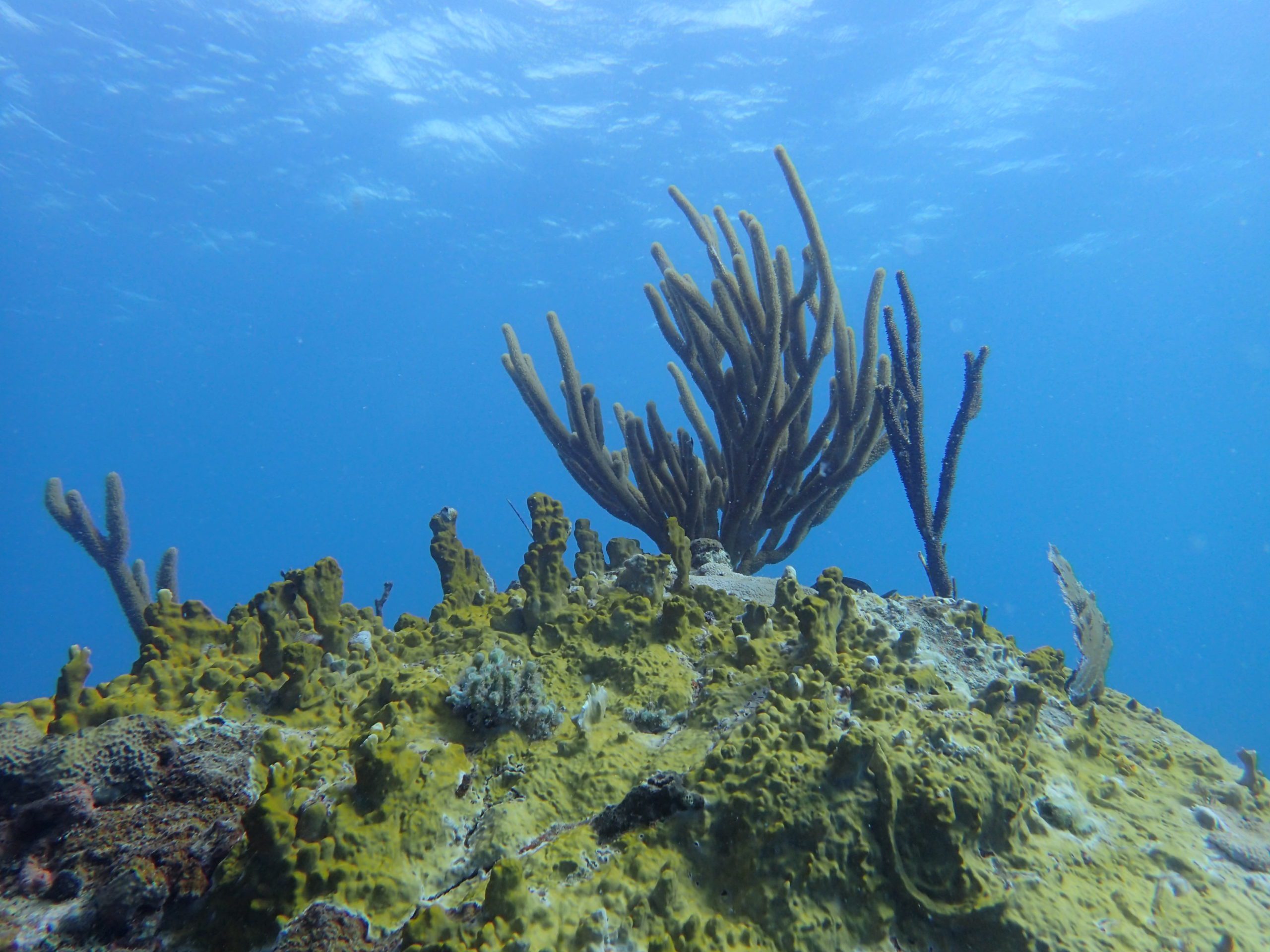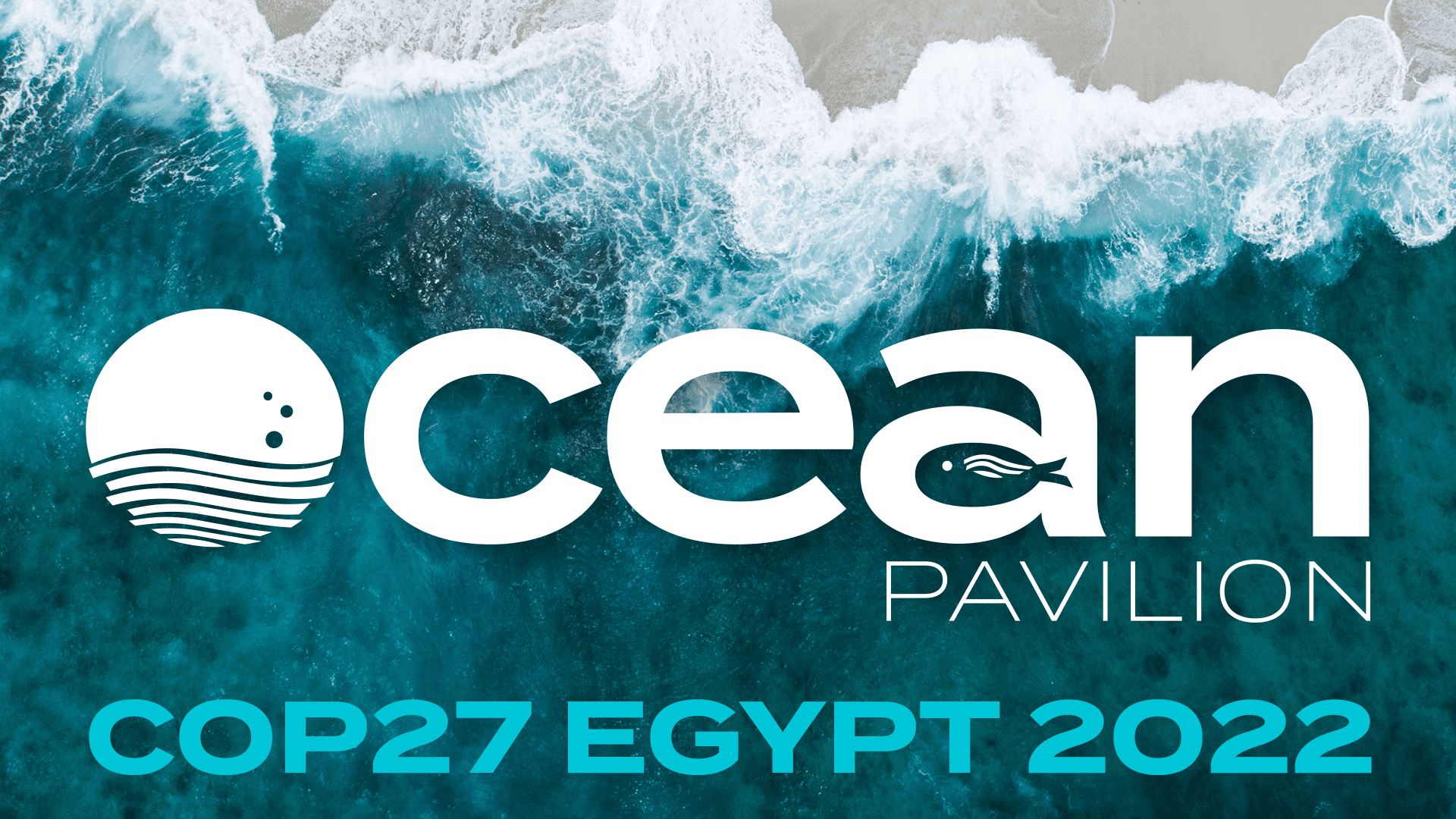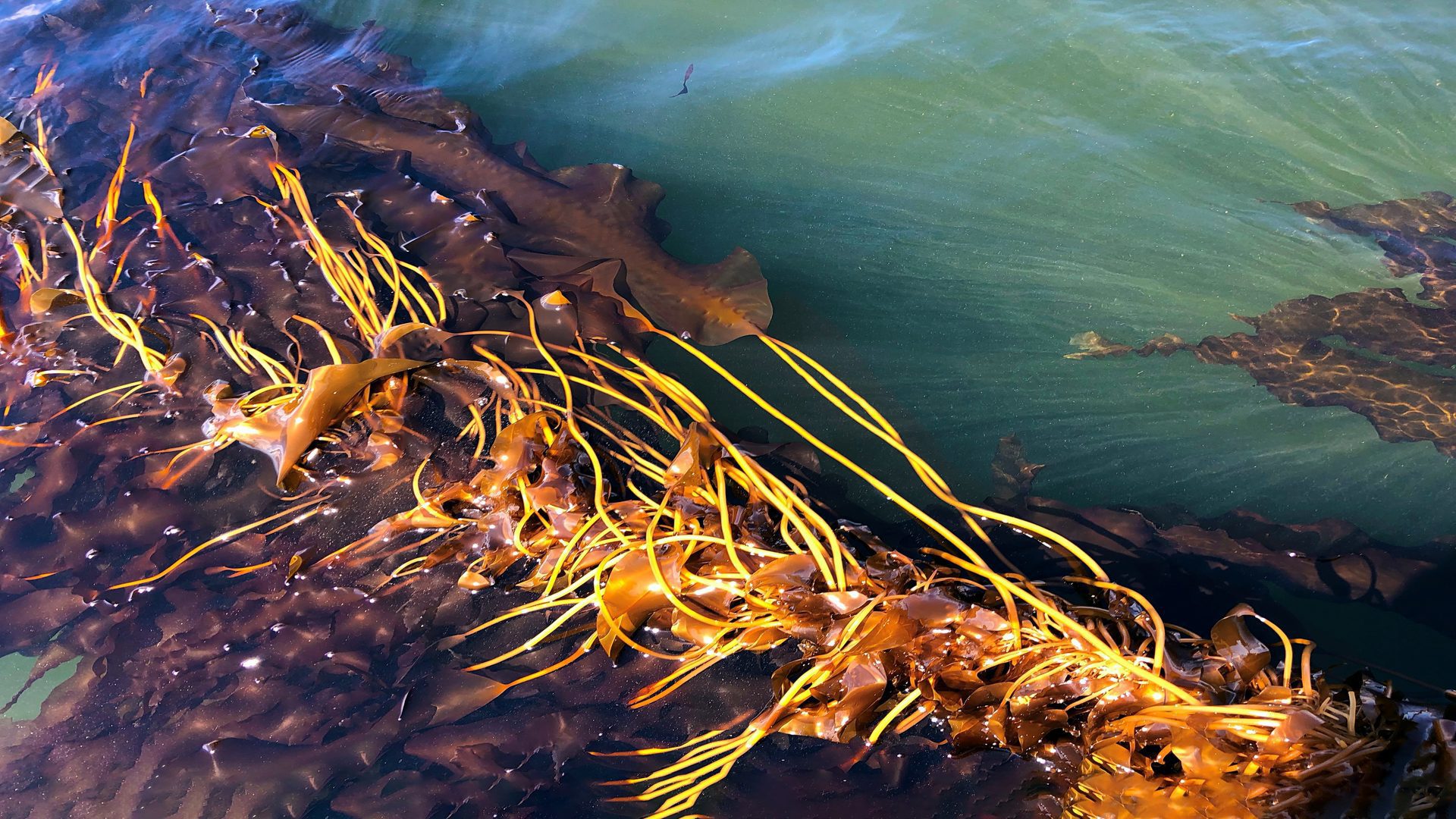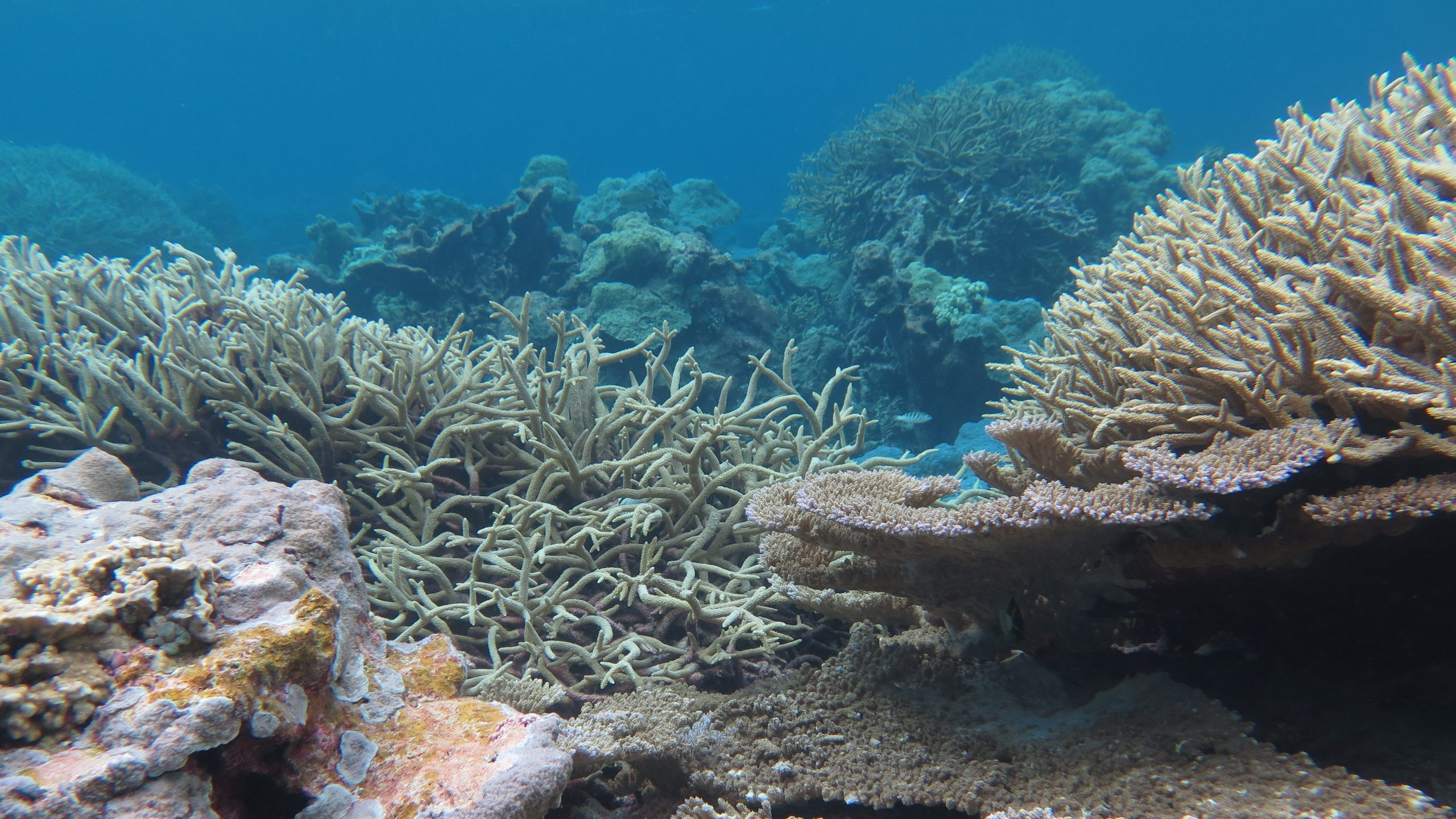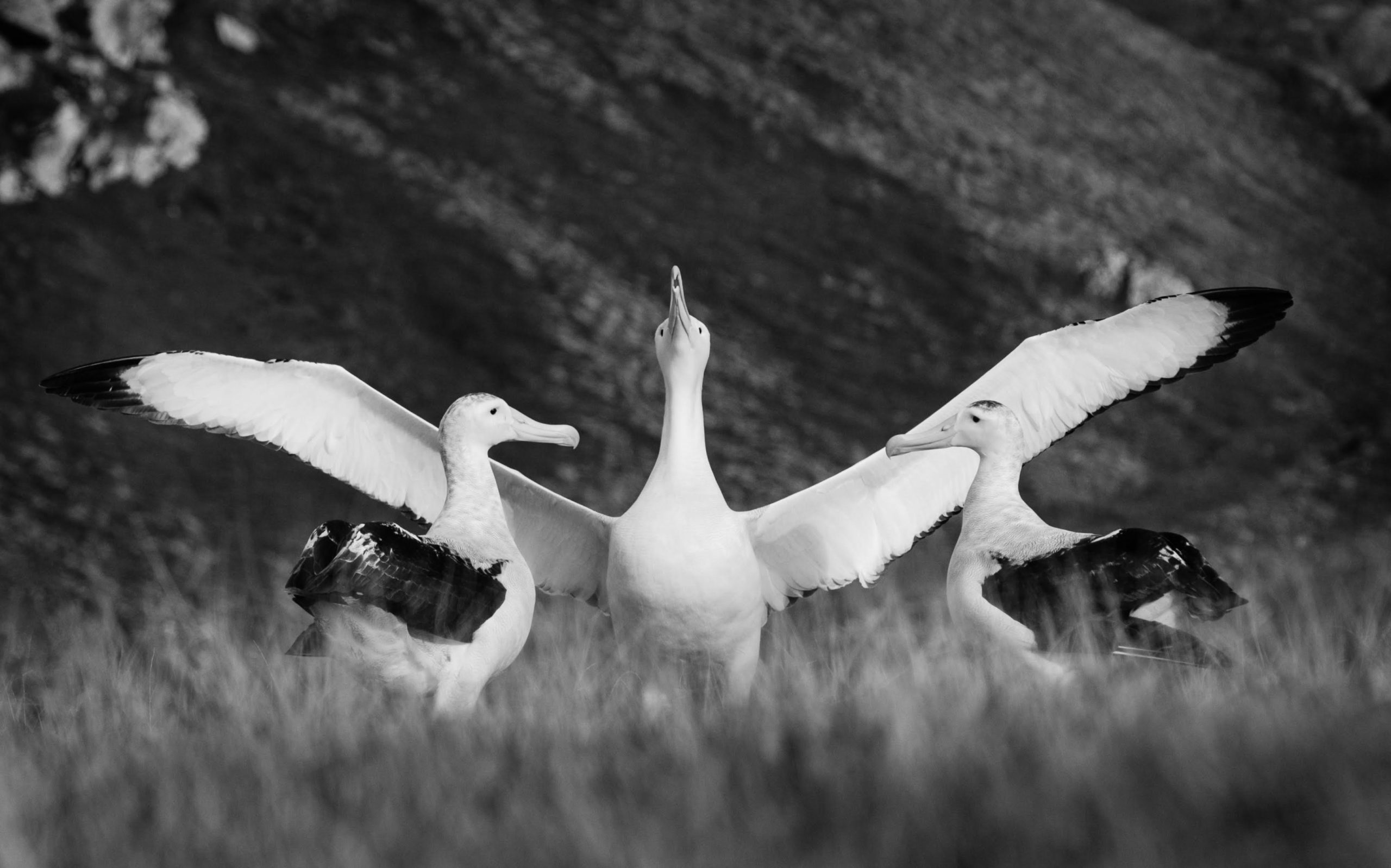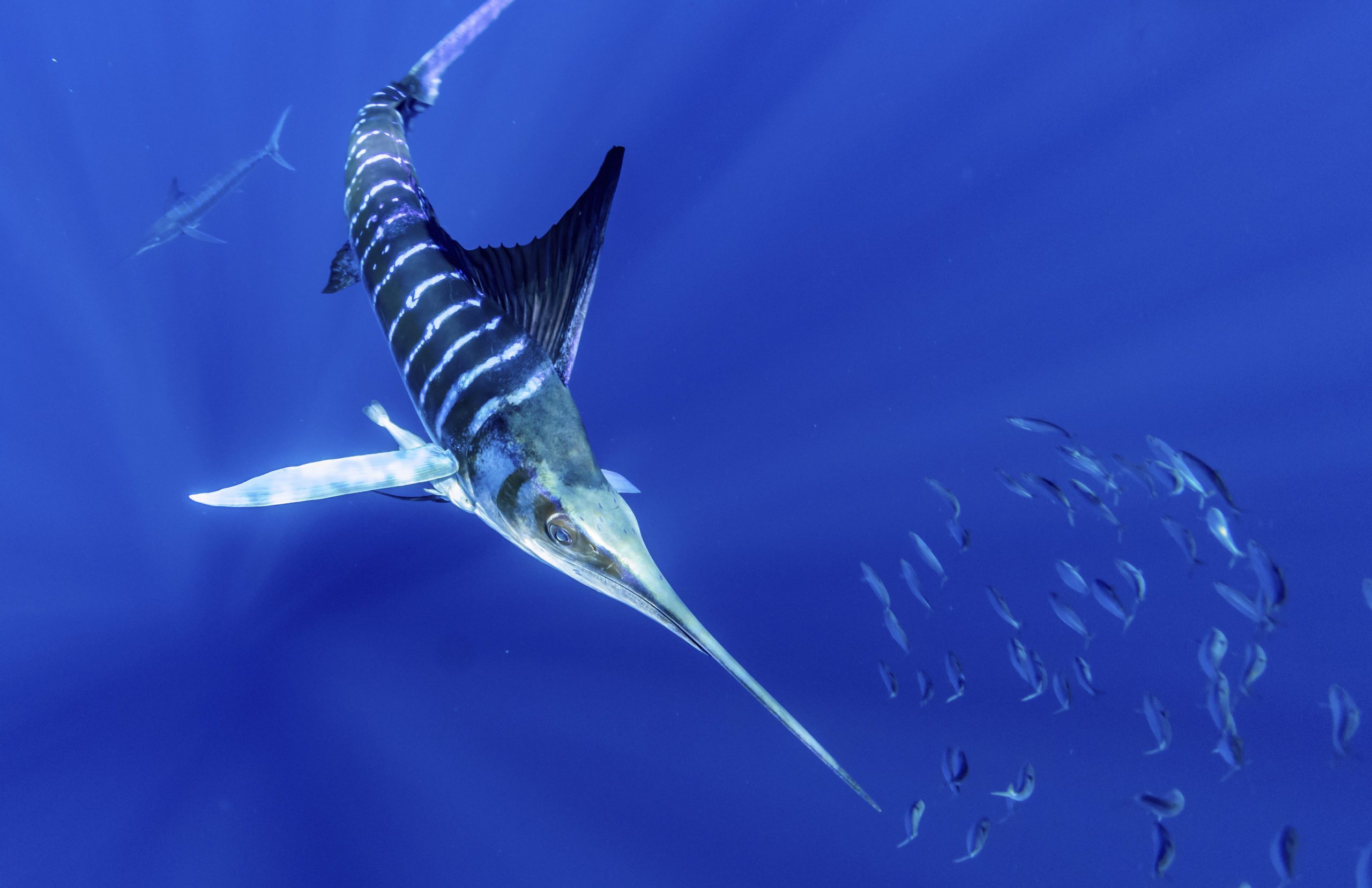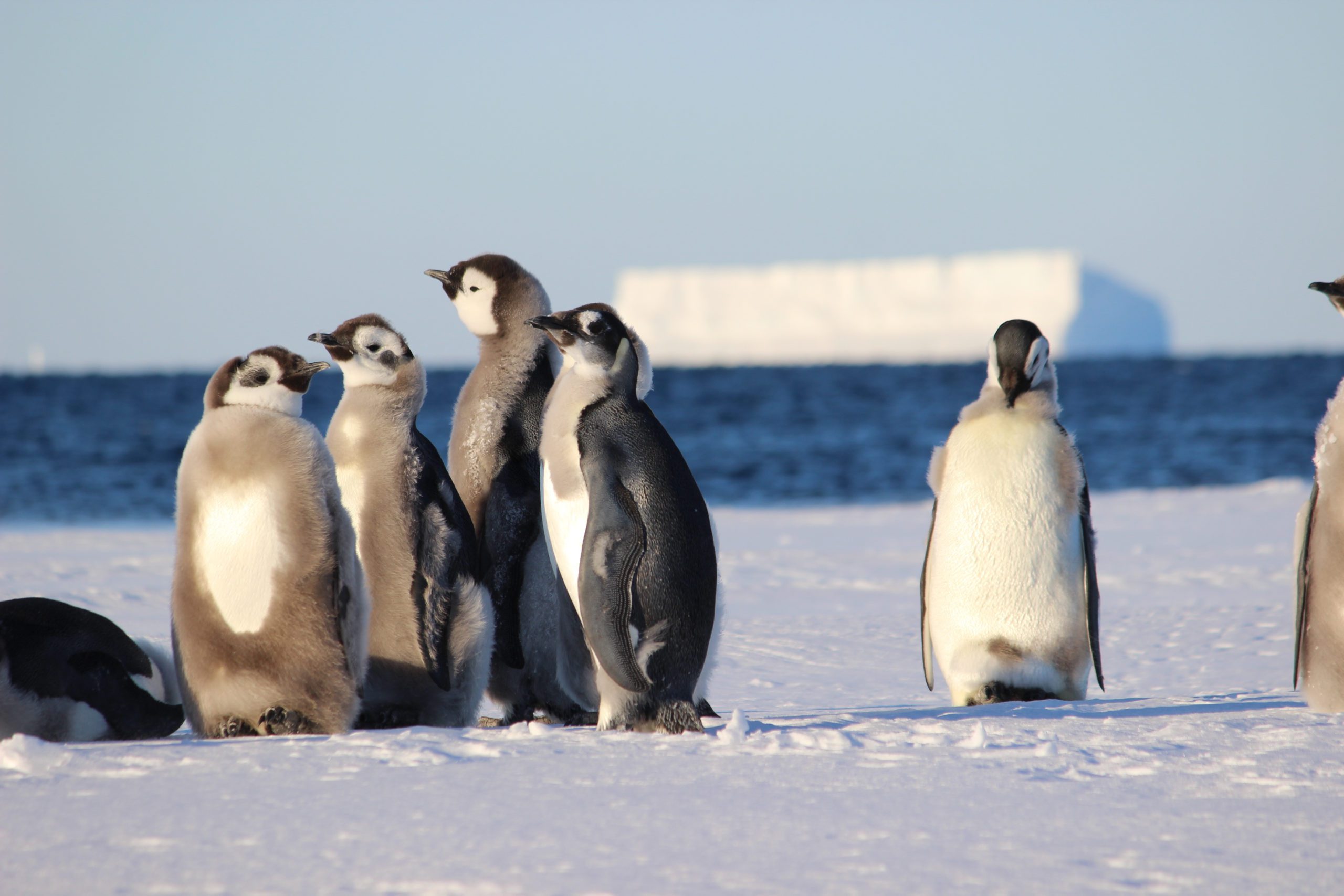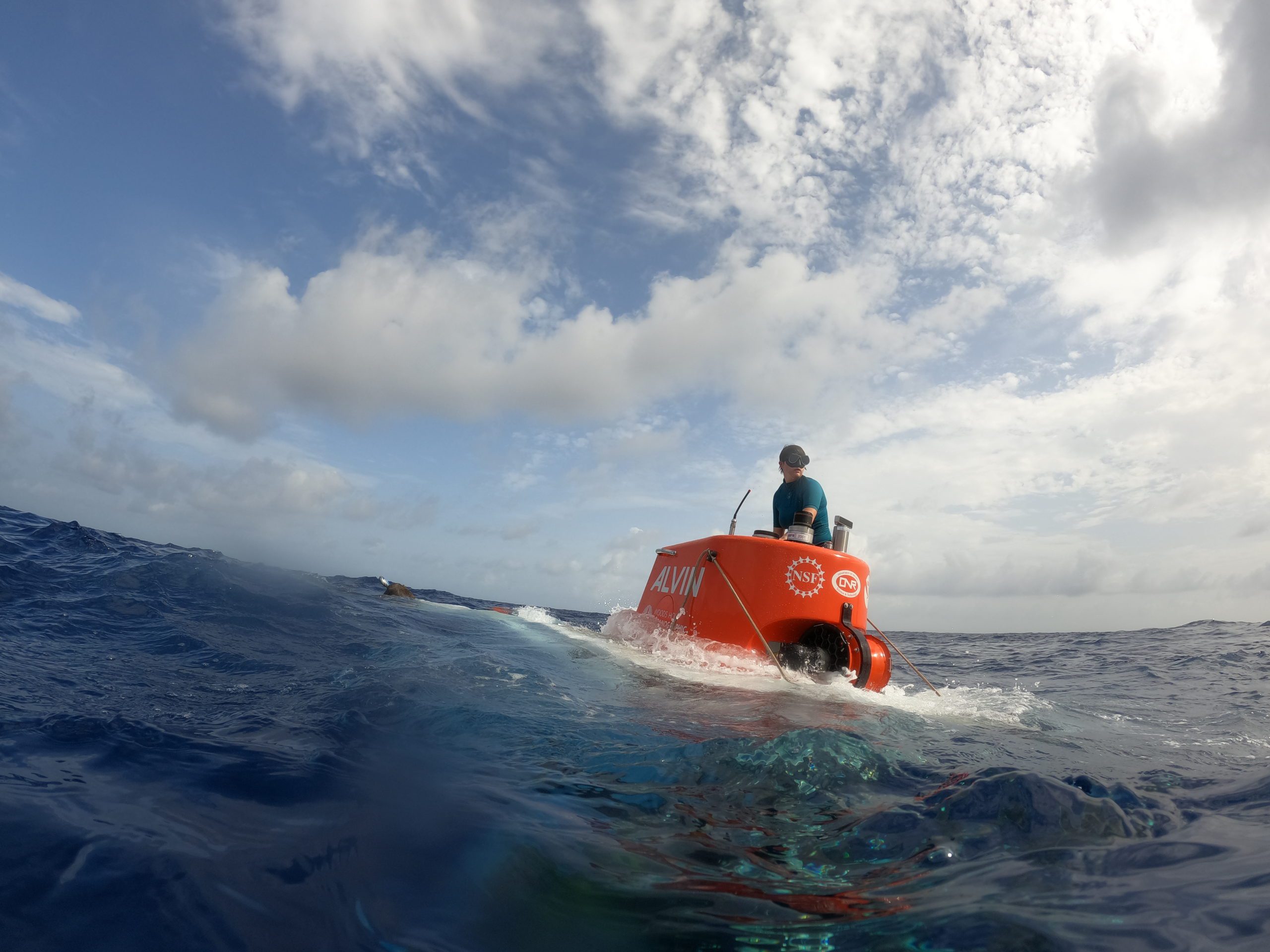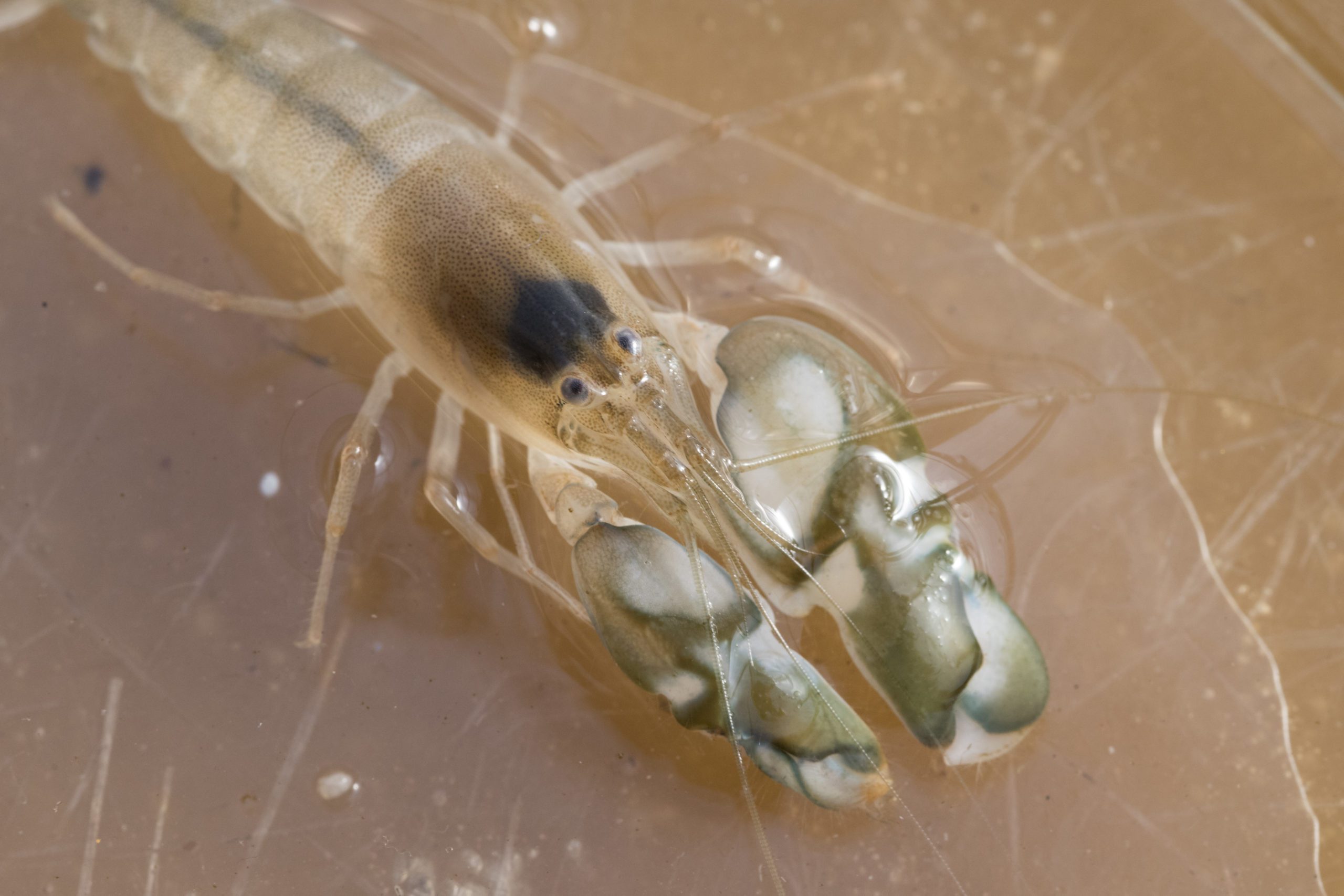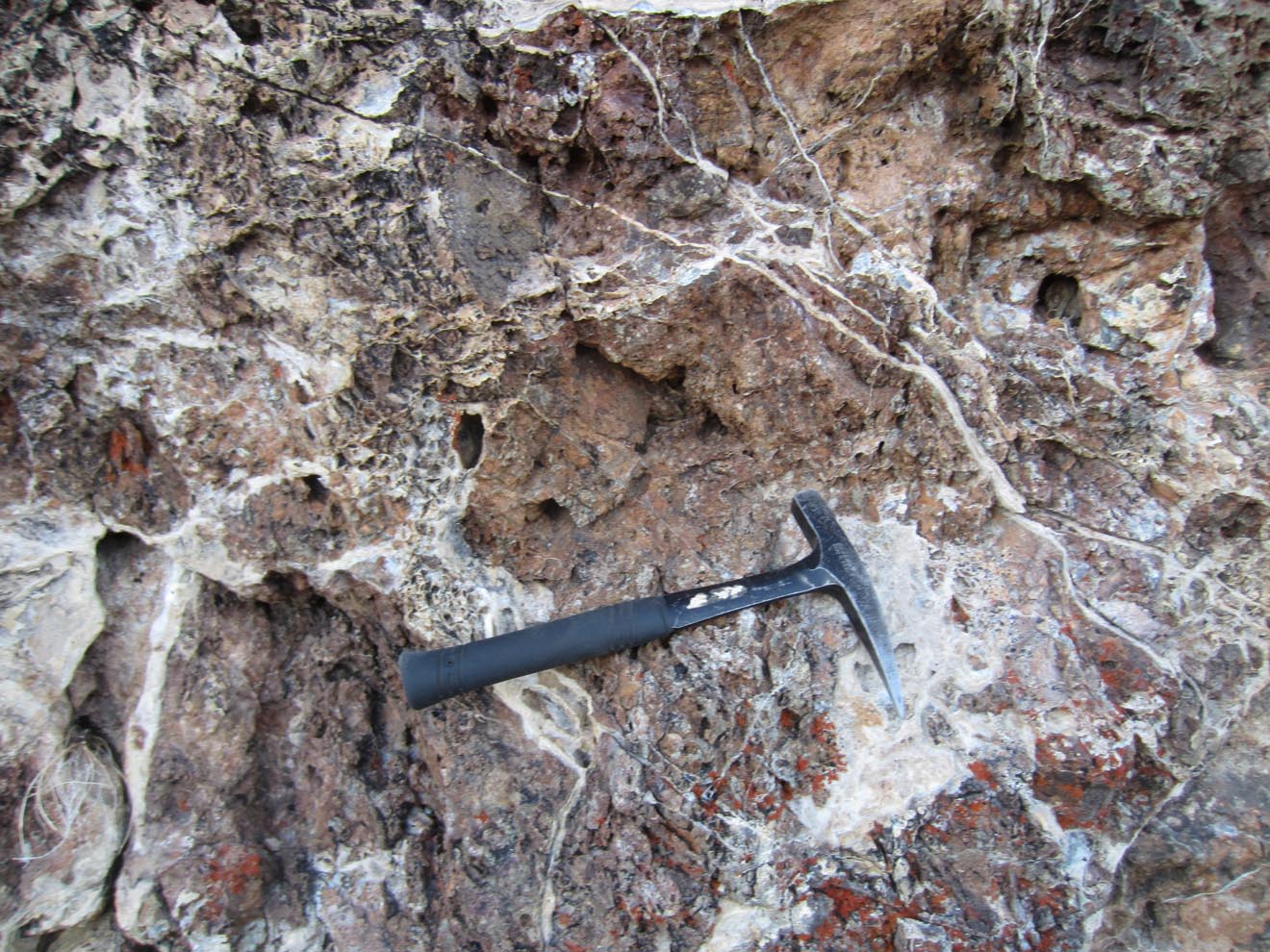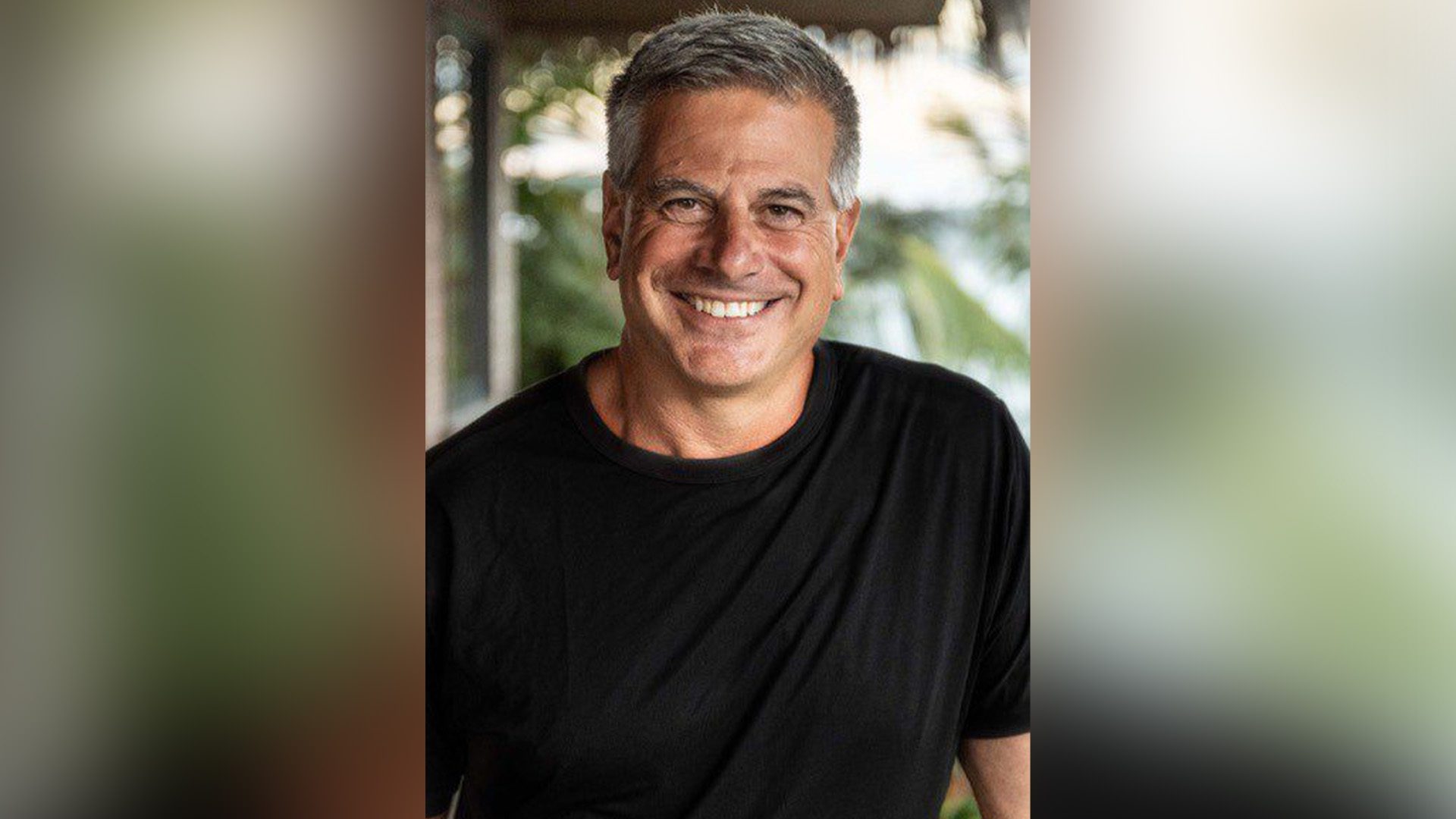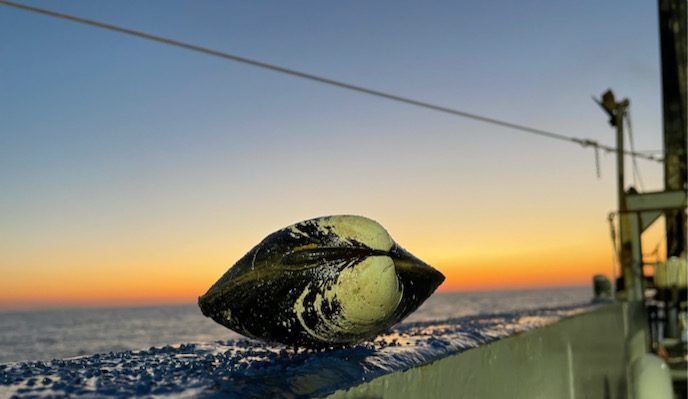News Releases
Palau’s Rock Islands Harbor Heat-resistant Corals
Scientists studying reefs in Palau have identified subgroups of a coral species that exhibit remarkable tolerance to the extreme heat associated with marine heatwaves
Read MoreNew Research Unlocks Clues About the Iconic Flight of the Wandering Albatross
Wandering albatrosses’ wingspan of up to 11 feet and is the largest known of any living bird, and yet wandering albatrosses fly while hardly flapping their wings. Instead, they depend on dynamic soaring in addition to updrafts and turbulence.
Read MoreThe Ocean Pavilion announces schedule of events for COP27
The Ocean Pavilion, the first time the ocean has been a singular focus of a pavilion inside the central “Blue Zone,” will host approximately 60 sessions over the two-week period, Nov. 6-18.
Read MoreWoods Hole Oceanographic Institution Receives $2 million from State for CWATER project
Funding is part of $3 million economic development package secured by Falmouth legislators.
Read MoreArctic Hydrothermal Vent Site Could Help in Search for Extraterrestrial Life
When scientists discovered a hydrothermal vent site in the Arctic Ocean’s Aurora hydrothermal system in 2014, they did not immediately realize just how exciting their discovery was.
Read MoreWoods Hole Oceanographic Institution Elects New Corporation Members and Chairs at Recent Joint Meetings
The Board of Trustees of Woods Hole Oceanographic Institution (WHOI) recently welcomed five new Corporation Members.
Read MoreWoods Hole Oceanographic Institution honored with IEEE Milestone for Technical Innovation and Excellence
HOV Alvin recognized as one of world’s most important deep-sea scientific instruments
Read MoreEmperor penguins granted protections under Endangered Species Act
Woods Hole Oceanographic Institution among research groups that offer key findings to support federal protection of species, increasingly under siege by climate change
Read MorePropeller Announces $100 Million Fund to Invest in Ocean-Climate Companies
Unique partnership with Woods Hole Oceanographic Institution and veteran leadership team deploys vital capital to blue economy ‘narwhals’ at the nexus of ocean innovation, science and technology.
Read MoreStudy Examines the Impact of Coral Chemical Compounds on Reef Composition and Health
The study found that the organic chemical compounds produced through metabolism —known as metabolites or exudates—vary significantly by coral species and that the compounds impact the abundances and compositions of reef microorganisms differently.
Read MoreWHOI Named 2022 Mass Save™ Climate Leader for Outstanding Commitment to Energy Efficiency
Woods Hole Oceanographic Institution (WHOI) has been selected as a 2022 Mass Save™ Climate Leader; one of just 19 commercial and industrial organizations across the Commonwealth to receive this recognition.
Read MoreFirst ever ocean-focused pavilion in the Blue Zone
Leading ocean science and philanthropic organizations to highlight the global ocean at UN climate conference
Read MoreResilient Woods Hole Awarded Grant from Massachusetts Office of Coastal Zone Management
Resilient Woods Hole (RWH), a private/public collaboration to prepare the village and blue economy of Woods Hole for major climate impacts such as sea-level rise, coastal flooding, and shoreline loss, has been awarded a second grant from the Massachusetts Office of Coastal Zone Management to continue its work in implementing community climate resiliency solutions.
Read MoreWoods Hole Oceanographic Institution receives Seagriculture Innovation Awards
Woods Hole Oceanographic Institution (WHOI)-led teams earned Gold and Silver Innovation Awards for seaweed solutions projects, presented at the first annual Seagriculture Conference USA 2022 in Portland, Maine.
Read More“Digital Reefs” awarded $5 million
The National Science Foundation (NSF) has awarded Woods Hole Oceanographic Institution (WHOI) $5 million to participate in NSF’s ground breaking Convergence Accelerator Program. The project, led by WHOI scientist Anne Cohen, builds the world’s first Coral Reef Digital Twin, a 4-dimensional virtual replica of a living coral reef powered by state-of-the art data and models.
Read MoreThe bolder bird gets (and keeps) the girl
A new paper by WHOI researchers demonstrates a connection between personality and divorce in albatross
Read MoreHow marine predators find food hot spots in open ocean “deserts”
A new study led by scientists at Woods Hole Oceanographic Institution (WHOI) and University of Washington Applied Physics Laboratory (UW APL) finds that marine predators, such as tunas, billfishes and sharks, aggregate in anticyclonic, clockwise-rotating ocean eddies (mobile, coherent bodies of water). As these anticyclonic eddies move throughout the open ocean, the study suggests that the predators are also moving with them, foraging on the high deep-ocean biomass contained within.
Read MoreMarine Protected Areas in Antarctica should include young emperor penguins, scientists say
Scientists at the Woods Hole Oceanographic Institution (WHOI) and European research institutions are calling for better protections for juvenile emperor penguins, as the U.S. Fish and Wildlife Service considers listing the species under the Endangered Species Act and the Commission for the Conservation of Antarctic Marine Living Resources (CCAMLR) considers expanding the network of Marine Protected Areas (MPAs) in the Southern Ocean.
Read MoreWHOI welcomes Yessica Cancel as Chief People Officer
WHOI announced the appointment of Yessica Cancel to its executive team in the newly created position of Chief People Officer (CPO)
Read MoreHuman-occupied vehicle Alvin successfully completes science verification
After three weeks in the Puerto Rico trench and Mid Cayman Rise, Alvin is certified to return to research with its new max depth of ~4 miles
Read MoreAs oceans warm, snapping shrimp sound a warning
Research published by Woods Hole Oceanographic Institution (WHOI) scientists today in Frontiers in Marine Science confirmed their previous observations that rising temperatures increase the sound of snapping shrimp, a tiny crustacean found in temperate and tropical coastal marine environments around the world.
Read MoreCarbon sequestration sites may prevent earthquakes
New evidence suggests that CO2-rich springs may be buffering quakes along areas of the San Andreas Fault
Read MoreWHOI names Paul Salem as new Board of Trustees Chair
Paul Salem, a leader in private equity and non-profit board service, has been named Woods Hole Oceanographic Institution’s new Chair of the Board of Trustees. Salem will transition into the role officially on January 1, 2023, taking over for David Scully, who has served as the Board Chair for the past seven years.
Read MoreRapid warming in the Gulf of Maine reverses 900 years of cooling
Rapid 20th century warming in the Gulf of Maine has reversed long-term cooling that occurred there during the previous 900 years, according to new research that combines an examination of shells from long-lived ocean quahogs and climate model simulations.
Read More
